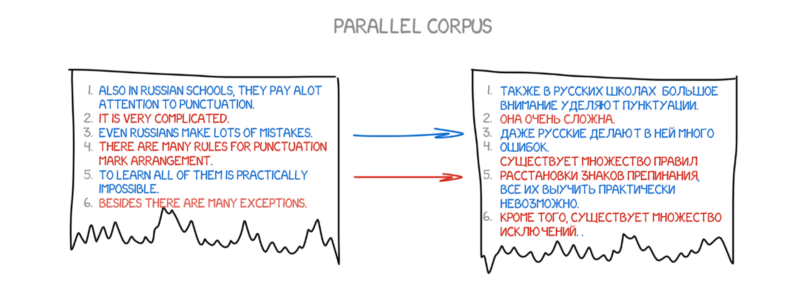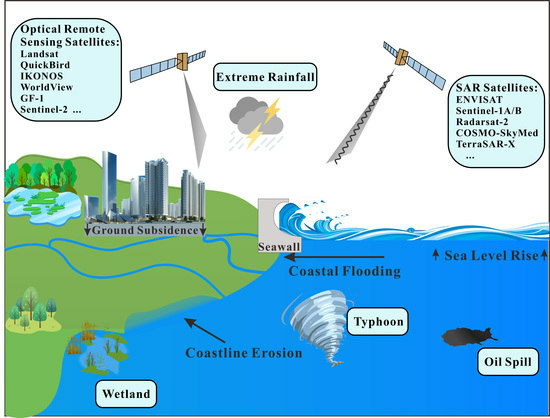“Everyone is wondering where the high-tech industry is going. The last three years have been a rollercoaster. We thought 2020 would be a tough year, but then the industry changed gears and there was a continuous increase in investment and demand. for employees. Now it seems to fall again. However, the first half of 2022 still looks good with $10 billion of investment in Israeli start-ups, so if there is a change, we are just at the beginning,” said Uri Gabai, CEO of Start-up Nation Policy Institute, speaking at the National Economic Conference organized by Calcalist and Bank Leumi.
“Demand and employment of high-tech employees remains unprecedented: 30,000 new workers joined in 2021 and there was a 30% increase in the number of employees in growth companies, with an increase not only in technology professions, but also in professions such as e.g. of marketing”, added Gabai optimistically. However, from there he switched to a more gloomy forecast. “The shutdown will be painful in the short term, but it’s partly a good thing because it will make the sector reasonable again. We’ve heard from quite a few high-tech CEOs that wages have already become unrealistic.”
“Technology and the demand for technological solutions will continue to grow, and so will the demand for employees to develop them,” added Gabai. “Therefore, in the long term, the demand for high-tech workers in Israel will continue to grow.”
From here, Gabai focused on the long-term challenges of Israel’s high-tech industry, namely expanding employment circles to additional sectors whose participation today is relatively low. “Not all positions in high technology are the same and therefore require different training. In highly technological professions one must have a focused academic education, but in data and product professions one can also find a job with a broader academic education. Another challenge and a less optimistic side is insufficient representation of women, Arabs and the ultra-Orthodox sector in high technology.
On the optimistic side, there are several companies that have grown rapidly in the number of employees from different sectors, and from the checks we conducted we came to two conclusions. The first is that companies with more female employees perform better, have fewer layoffs and grow more. Another complementary conclusion is that companies that grow in the number of employees and increase employment also expand the circles of employment. The goal of the high-tech sector should be to bring more and more people from different population groups into high-tech companies, this is necessary for the economy and Israeli society,” Gabai concluded.
Which countries do not allow visitors from Israel? If you get a paper stamp, which we’ll cover below, you’ll be fine. If you have a work visa or a non-tourist visa, there are countries that will ban you. These include Iran, Kuwait, Lebanon, Libya, Syria and Yemen.
Where did Jews live before Israel?
Most of the Jewish population was exiled to Babylon, but some Jews remained. See the article : Unity’s video game technology development software saves over 200 jobs. About 150 years later (539 BCE), the Persians conquered Babylon and allowed exiled Jews to return to Israel and authorized the rebuilding of the Temple in Jerusalem.
What country existed before Israel? During the 2nd millennium BC, Canaan, part of which later became known as Israel, was dominated by the New Kingdom of Egypt from c. 1550 to c. 1180
Where did Jews live before Jerusalem?
Before the middle of the first century AD, in addition to Judea, Syria and Babylonia, large Jewish communities existed in the Roman provinces of Egypt, Crete and Cyrenaica, as well as in Rome itself; after the siege of Jerusalem in 63 BC, when the Hasmonean kingdom became a protectorate of Rome, emigration intensified. See the article : Joint Statement of the Board of Directors of the Negev Forum – United States Department of State.
Where did Jews live in the first century?
By the beginning of the first century AD, the Jews had spread from their homeland in Judea across the Mediterranean and there were major Jewish communities in Syria, Egypt and Greece.
Where did Jews live in the past?
Jewish Life in Europe Before the Holocaust In 1933, the largest Jewish population was concentrated in Eastern Europe, including Poland, the Soviet Union, Hungary, and Romania. Many Eastern European Jews lived in predominantly Jewish towns or villages, called shtetls.
Where did Jews begin to live?
After the fall of Jerusalem, Babylonia (present-day Iraq) would become the focus of Judaism for over a thousand years. Read also : Walk down and save big with this World Traveler subscription. The first Jewish communities in Babylonia began with the exile of the tribe of Judah to Babylon by Jehoiachin in 597 BC, as well as the destruction of the Temple in Jerusalem in 586 BC.
Where did Jews live in the first century?
By the beginning of the first century AD, the Jews had spread from their homeland in Judea across the Mediterranean and there were major Jewish communities in Syria, Egypt and Greece.
In what place country did Judaism begin?
| Judaism | |
|---|---|
| Region | The predominant religion in Israel and spread throughout the world as a minority |
| Language | Biblical Hebrew Biblical Aramaic |
| Founder | Abraham (traditional) |
| Origin | 1st millennium BC 20th–18th century century BC (traditional) Judah Mesopotamia (traditional) |
What language do they speak in Israel?
What is the most spoken language in Israel? Hebrew is the everyday language of Israel. This is a significant detail because language helps organize thoughts and intellectualize and recognize reality. Hebrew is not the only language spoken or heard in the country, but it is the main official language of Israel.
How many languages is spoken in Israel?
Important Languages of Israel According to the 21st edition of Ethnologue, the number of living languages in Israel is currently 34. Of these, 15 are non-indigenous and 19 are autochthonous. Hebrew and Arabic are the official languages of Israel, and they are the languages spoken by the majority of the population on a daily basis.
What are the top 3 languages spoken in Israel?
The four most common languages spoken in Israel are:
- Hebrew. Being the language of Judaism, it makes sense that in a self-proclaimed Jewish state, Hebrew would be at least one of the official languages. …
- Arabic. …
- English. …
- Russian.
What are the top 3 languages spoken in Israel?
From top to bottom: Hebrew, Arabic, English and Russian. English and Russian are the most popular unofficial languages in Israel.
What other languages are spoken in Israel?
According to Israel’s National Bureau of Statistics, 49% of the population speaks Hebrew, 15% Russian, 18% Arabic, 20% French, 2% English, and 1.6% Spanish. Other languages spoken in Israel are 10%.
What language did the Israelites speak?
Hebrew, which was spoken in ancient times in Palestine, was replaced by a western dialect of Aramaic beginning around the 3rd century BCE; however, the language continued to be used as a liturgical and literary language. It was revived as a spoken language in the 19th and 20th centuries and is the official language of Israel.
What are the top 2 languages spoken in Israel?
The four most common languages spoken in Israel are:
- Hebrew. Being the language of Judaism, it makes sense that in a self-proclaimed Jewish state, Hebrew would be at least one of the official languages. …
- Arabic. …
- English. …
- Russian.
What is the 2nd most spoken language in Israel?
Yiddish was traditionally the language of Ashkenazi Jews in Eastern Europe and the second most widely spoken Jewish language after Hebrew. It is currently spoken by about 200,000 Israelis, mostly in Hasidic communities.
Which language is most widely used in Israel?
Hebrew is the official language of the country and almost the entire population speaks it either as a mother tongue or as a second language. Its standard form, known as Modern Hebrew, is the main medium of life in Israel.
What is the promised land called today?
“God bless those who bless Israel.” “The land and people of Israel are blessed.” “Israel is the promised land of the Bible that is being fulfilled today.”
What does the Promised Land symbolize? Definition of Promised Land 2 or promised land: a happy place or state that one wishes to reach: a place where dreams or hopes can be realized. They came to America in search of the promised land.
Is the Promised Land called Canaan?
The Israelites occupied and conquered Palestine, or Canaan, beginning in the late 2nd millennium BC, or perhaps earlier; and the Bible justifies such occupation by identifying Canaan with the Promised Land, the land promised to the Israelites by God.
What is the name of the Promised Land in Canaan?
The Promised Land (Hebrew: ×”× ×¨×¥ המוגטחת, translit.: ha’aretz hamuvtakhat; Arabic: أرض ال٠يعا د, translit.: ard al-mi’ad; also known as “Land of Milk and Honey”) is the land that, according to the Tanakh (Hebrew Bible or Old Testament), God promised and later gave to Abraham and his descendants.
What was Canaan also called?
The name “Canaan” appears throughout the Bible, where it corresponds to “Levant”, especially the areas of the southern Levant that provide the main settings of the biblical narratives: the land of Israel, Philistia, and Phenicia, among others.
Where is the Promised Land in modern times?
“Israel is the promised land of the Bible that is being fulfilled today.”
What is the Promised Land known as today?
The land known as Canaan was located in the territory of the southern Levant, which today includes Israel, the West Bank and Gaza, Jordan, and the southern parts of Syria and Lebanon.
What does the Promised Land symbolize?
In the modern context, the term “promised land” conveys an image and idea that refers both to a restored homeland for the Jewish people and to salvation and liberation.
Where is the Hebrew Promised Land?
(21-3) Joshua 1:4. The Promised Land. Biblical Israel is generally considered to be the region south and southwest of the Lebanese mountains, north and east of Egypt, east of the Mediterranean coastal plain, and west of the Arabian desert.
Is it expensive to live in Israel?
In general, though, yes, Israel is expensive and has one of the highest costs of living in the world. Tel Aviv is quite expensive, ranking highly (15) in Mercer’s Cost of Living Survey (2019). Wages are usually low in Israel which makes life in this country even more challenging.
How much money do I need to live comfortably in Israel? Estimated monthly expenses for a family of four are $3,689 (12,761₪) excluding rent. Estimated monthly expenses for one person are $1,040 (3,597₪) excluding rent. The cost of living in Israel is on average 10.67% higher than in the United States. Rent in Israel is on average 29.58% lower than in the United States.
Can foreigners live in Israel?
But how difficult is it to settle in Israel? For foreigners, in fact, it can be extremely difficult unless you are Jewish and plan to immigrate permanently, or marry an Israeli citizen. Otherwise, the stay is usually not granted to foreigners unless you are coming for work.
Can expats live in Israel?
In part, Israeli society is very westernized, and many expats live in Israel. However, expats should always remain aware that there is a strong core Jewish religion that requires respect and sensitivity at all times.
How can I get permanent residency in Israel?
Permanent residency in Israel is usually granted to foreign nationals who do not want to renounce their foreign citizenship in order to obtain Israeli citizenship, so they choose to keep their foreign passport and have permanent residency in Israel.
What is the average rent in Israel?
The average monthly rent in Israel increased by 1.6 percent in the past year to a record 4,000 dinars. The average monthly rent in Israel continues to grow and reached a record 4,000 dinars in the third quarter of 2019, the State Bureau of Statistics announced. The rent index has increased by 1.6% in the past year and 10% in the past five years.
What is the average cost of living in Israel?
Estimated monthly expenses for a family of four are $3,622 (12,792₪) without rent. Estimated monthly expenses for one person are $1,021 (3,607₪) excluding rent. The cost of living in Israel is on average 8.57% higher than in the United States. Rent in Israel is on average 30.63% lower than in the United States.
How much does rent cost in Israel?
Average rent in Israel In expensive neighborhoods, it is not uncommon to pay up to 10,000 ILS (2,812 USD) per month for a standard four-room apartment. However, you can also find minimum apartment rental prices in Israel for as low as 500 ILS ($141 USD).
Is Israel cheaper than the US?
United States of America is 6.8% more expensive than Israel. Israel vs.
Is food expensive in Israel?
Although meal prices in Israel can vary, the average cost of food in Israel is €99 per day. Based on the spending habits of previous travelers, an average meal in Israel should cost around ₪40 per person when dining out. Breakfast prices are usually a little lower than lunch or dinner.
What is the average income in Israel?
The average monthly salary of Israeli employees has fallen slightly in recent months to NIS 11,667 ($3,710), down from NIS 11,799 ($3,752) in August and NIS 11,772 ($3,743) in July, as the Israeli economy continues to recover from the COVID-19 pandemic. .
What is the legal age in Israel?
If the offense is committed, in any place, in the opinion of a person under the age of 16, the maximum prison sentence is three years. 34.6.
Which country has a legal age of 12? Age of consent laws vary significantly around the world. Most countries require young people to be at least 14 before having sex. But there are exceptions. Angola and the Philippines set the age of consent at 12, the lowest in the world.
What country is 16 the legal age?
In 76 other nations around the world, the age of consent is 16. Some of these countries include the United States, the United Kingdom, Canada, Russia, Taiwan, South Africa, Nepal, Mongolia, and Lesotho.
Is 16 legal in the UK?
In every nation in the UK, the age of consent (the legal age at which people can engage in sexual activity) is 16. This is the same regardless of a person’s gender identity, sexual identity and whether the sexual activity is between people of the same or different sexes.
How many countries is the legal age 16?
| Country | Region | Age Of Consent |
|---|---|---|
| Andorra | Europe | 16 |
| Angola | Africa | 12 |
| Antigua and Barbuda | North America | 16 |
| Argentina | south america | 18 |
What country has legal age of 14?
The minimum age of consent in Europe is 14, which is applied in countries including Austria, Germany, Serbia, Italy and Portugal, while some of the European countries have set 16 to 17 as the age of consent, while several others, including Malta and Vatican, require at least 18.
What states have age of consent at 14?
| Country | Age of consent | Minimum age of the victim |
|---|---|---|
| Oklahoma | 16 | 14 |
| Oregon | 18 | 15 |
| Pennsylvania | 16 | 13 |
| Rhode Island | 16 | 14 |
Is 14 a minor in Japan?
70. The Criminal Code of Japan provides that anyone under the age of 14 is not subject to criminal punishment. The minimum age at which a person is subject to criminal responsibility is fourteen years. 71.
How old is a minor in Israel?
The amendment changes the provisions related to minors in the military justice system, which applies to Palestinians in the West Bank. Israelis living in the West Bank are prosecuted under Israeli criminal law. The amendment raises the age limit for minorities from 16 to 18 years.
What is the legal age to marry in Israel?
Article Israel: Minimum Marriage Age Raised to 18 (November 12, 2013) On November 4, 2013, the Knesset passed the Marriage Age Law (Amendment No. 6), 5774-2013 (Israeli Parliament) passed the Law on marriage A Amendment no.
What’s the legal age in Israel?
According to Israeli civil law and Israeli military law, the minimum age of criminal responsibility is 12 years.






